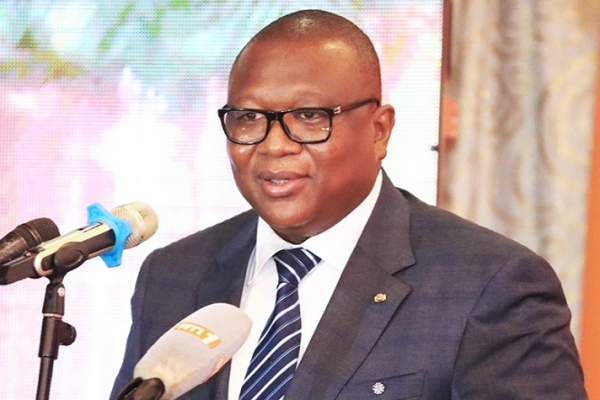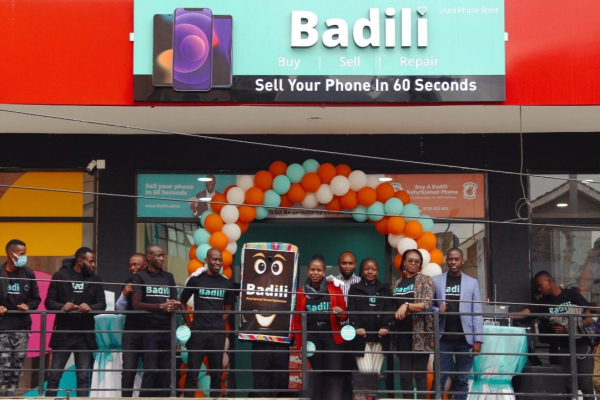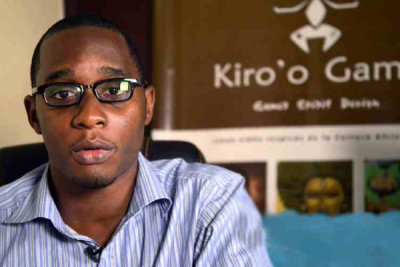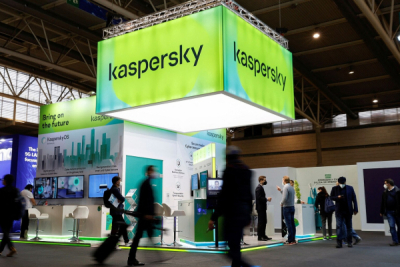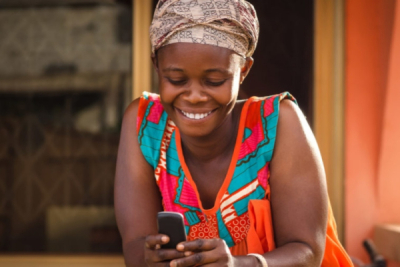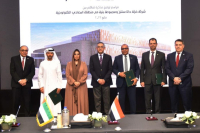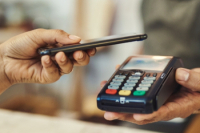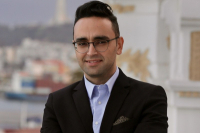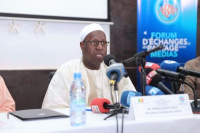Côte d'Ivoire plans to achieve full digital transformation by 2030. For that purpose, the country needs advanced technical and technological talents. Hence its interest in various partners that are already showing their interest in the market.
A delegation of 220 French companies specializing in digital infrastructure will be in Abidjan, Côte d'Ivoire from May 11 to 12. According to the Ministry of Communication and Digital Economy, which released the information on Monday, May 8, the companies will take part in the “Rencontres Internationales des infrastructures numériques” (International conference digital infrastructure).
During the two-day conference, participants will showcase their expertise in various areas including telecommunications networks, cloud infrastructure, and data management. They will also hunt for business opportunities in Côte d’Ivoire, where the government is currently engaged in a broad digital transformation project.
"The International Conference on Digital Infrastructure is an international event aimed at fostering exchanges, partnerships, and business opportunities in the field of digital infrastructure. This event will bring together experts, public and private sector actors, as well as investors interested in the development of digital infrastructure in Côte d'Ivoire," informed a release from the Ministry of Communication and Digital Economy.
In October 2022, Digital Minister Amadou Coulibaly (photo), revealed the country's need for more than CFAF 2,000 billion ($3 billion) in investments for the implementation of the 96 projects covered by its 2021-2025 digital development strategy. Many of the projects aim to improve the access, quality, and security of digital services.
The projects offer significant business opportunities for the participating tech companies. The Ivorian government expects the conference will be an opportunity to attract strategic partnerships to support the realization of its digital projects, the most urgent of which are the construction of the National Data Center and the completion of the national fiber optic network.
Samira Njoya
The solution was launched after one of its co-founders’ employees got arrested for buying a stolen smartphone.
Badili is an online refurbished smartphone retailing platform developed by an eponymous Kenyan startup launched in 2022. It allows users to buy phones at competitive rates, that can go up to 50% down from brand-new prices.
“We are providing an alternative to people who don’t want to pay full price for a device, and I am more excited about the fact that we can help a lot of consumers buy their first smartphone,” Badili’s CEO, Rishabh Lawania, told media outlet Techcrunch in late 2022.
“One of my ex-employees in Kenya got arrested for buying a stolen phone, and it struck me that most people can’t buy pre-owned electronics here because the only option they have is the grey market, which is risky. That is when the Badili idea kicked in. I thought something needs to change,” he explained.
The solution has no mobile app yet, but users can visit its web platform to discover all the available smartphone brands and ranges, including Infinix, Apple, Samsung, Redmi, and Oppo.
Badili also allows individuals to resell their used smartphones. Its pricing algorithm makes a summary estimate of used phones’ value by considering brands and models. For thorough estimates, users have to give more details about the condition of their used phones, including the state of the screen, components, and additional accessories.
Users can also get their phones repaired on the platform. The founding startup plans to expand throughout Africa. For that purpose, the Naribo-based startup, founded in 2022, has already raised close to $3.9 million.
“We are launching in Uganda and Tanzania and have established strong partnerships with original equipment manufacturers (OEMs). Within the next six months, we will be expanding to a few West African markets to get our foot in the door of some of the major markets in Africa,” said Rishabh Lawania when the startup raised $2.1 million in pre-seed funding in December 2022.
Adoni Conrad Quenum
He develops video games that highlight African cultures in an industry that has long been dominated by foreign companies. Through his hard work and dedication, he is transforming the industry and inspiring a new generation of African entrepreneurs.
Olivier Madiba (photo) is a Cameroonian entrepreneur and video game developer. He is best known for being the founder and CEO of Kiro'o Games, the first video game studio in Central Africa. Through his work, Madiba established himself as one of the leading players in the African video game industry, showcasing African culture.
The Cameroonian-born got interested in video gaming quite early. After his computer science studies at the University of Yaoundé 1, he went on to study business management, as a YALI scholar, at Dartmouth College, in New Hampshire.
In 2013, he founded Kiro'o Games, a video game creation studio with an all-African team. The studio creates the best African digital catalog with a mix of video games, comics, animations, illustrations, etc. In 2016, the company released its first game, "Aurion: Legacy of the Kori-Odan" which was inspired by African culture. The game soon became a commercial success.
The studio also developed several other games, including the game "Le responsable Mboa," a comic game satirizing civil servants’ vices, and "Aurion: Kajuta Gems Fighters," a puzzle adventure game in the Aurion universe.
In 2007, Olivier Madiba established his first enterprise, MADIA GROUP, an IT company providing services such as web development, hosting, and web design. This venture marked the origin of the Kiro'o project.
His work at Kiro'o Games has earned him several awards. He is recognized as one of the leading players in the video game industry in Cameroon. In 2016, he was the runner-up of the Total Energies Startupper Challenge in Cameroon. He is one of the 20 French-speaking African entrepreneurs to watch in 2023 according to the African media outlet Warketing Digital.
Melchior Koba
About 13 million cyber attacks targeting bank accounts and customer data in the Egyptian banking sector were thwarted by Kaspersky in the first quarter of 2023, according to Amin Hasbiny, the head of the global research and analysis team for the Middle East, Turkey, and Africa at Kaspersky.
Speaking on the sidelines of Kaspersky's eighth annual cybersecurity forum in Almaty, Kazakhstan, Amin Hasbiny noted that the attacks were 186% up from the figures recorded in the same quarter last year.
Last Monday, LinkedIn announced a reorganization of its global sales organization and China strategy. The decision involves the reduction of roles for 716 employees and the phasing out of its local China jobs application, InCareer, by August 9. The decisions stem from the group’s desire to adapt to the changing market, and customer demand as well as become more agile and align teams for its next growth phase.
"As we plan for FY24, we’re expecting the macro environment to remain challenging. We’re adapting as we have done this year and will continue to operate with the ambition we need to deliver on our vision and the pragmatism required to run the business well," wrote Ryan Roslansky, LinkedIn's CEO.
Over the past few years, mobile money has become an increasingly important financial tool for a growing segment of the African population. As the service becomes more diversified, it continues to gain maturity and conquer new markets across the continent
In 2022, Africa was the fastest-growing mobile money market in the world. In its "State of the Industry Report on Mobile Money 2023", the GSM Association (GSMA) reveals that the continent recorded 166 active services (out of 315 worldwide) and 781 million active accounts (48.81% of the world's 1.6 billion registered users), up by 17% compared to 2021.
The continent also accounted for 44.9 billion (+21%) financial transactions estimated at $836.5 billion (+22%). The amount represents 66.39% of the $1.26 trillion mobile money transactions recorded worldwide in 2022.
East Africa remained the most dynamic sub-region on the continent with 390 million active accounts, 28 billion transactions, and $491.8 billion in transaction value. North Africa, due to its small size, recorded the lowest performance with 18 million active accounts, 97 million transactions, and $4.7 billion in transaction value.
Infographic: Mobile Money Market in Africa (2022)
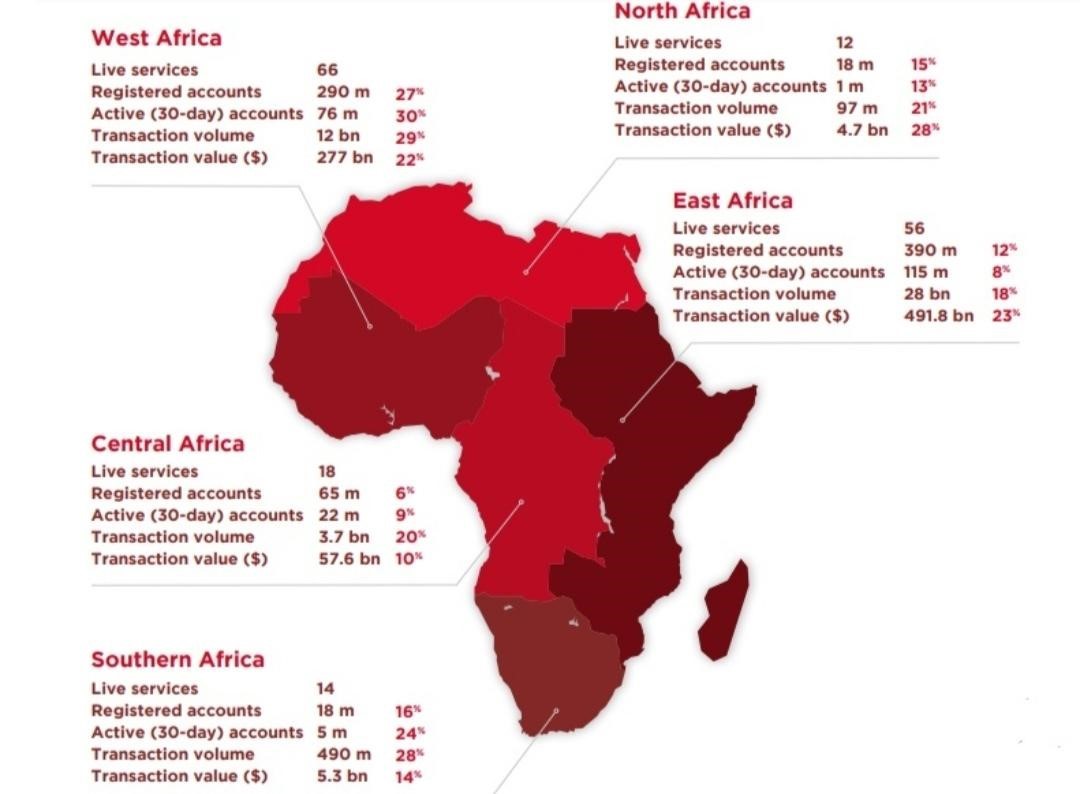
Source: GSMA
According to the GSMA, despite this positive performance, there are lingering challenges that threaten financial inclusion. “Some countries have introduced taxes on mobile money transactions and fees that do not align with their financial inclusion objectives. Fraud also remains an industrywide issue, which many regulators are aiming to overcome through improved consumer awareness and capacity building,” the report indicates.
Competition is intensifying in Africa's rapidly growing data center market. Both local and foreign companies are increasing their investments in infrastructure to meet the rising demand for cloud services across the continent.
An agreement was signed on Monday, May 8, to secure land for the construction of a large-scale data center in Egypt. Khazna Data Centers, a company specializing in data center construction and operations based in Abu Dhabi, has partnered with the Egyptian ICT company, Benya Group, to carry out the project. The agreement was signed by Ahmed Mekky, CEO of Benya Group, Hassan Al Naqbi, CEO of Khazna Data Centers, and Amr Aboualam, chairman of Maadi Technology Park.
Under the agreement, Khazna Data Centers and Benya Group will build a $250 million data center at Maadi Technology Park in Cairo. The center will have a capacity of 25 megawatts (MW) that is expected to double to 50 MW as expansion plans are implemented. The goal is to meet the region's underserved data markets. Construction works are expected to begin later this year and be completed within three years.
The new agreement marks Khazna’s entrance into the Egyptian market. The company plans to expand into three other MENA markets, including Saudi Arabia, Kuwait, and Morocco.
According to Ahmed Mekky, Khazna's expansion in Egypt "will contribute to attracting more investments for business sectors involving intensive operations, supporting cloud computing and content system operators” and “encourage major commercial companies to join these giant digital clusters that rely on the latest cloud computing applications, digital technology, and big data."
Samira Njoya
The fintech company, originally known as Aboki, has evolved into a full-fledged neobank that provides banking services to unbanked individuals.
Grey is a fintech solution developed by an eponymous Nigerian start-up. It provides digital banking services such as current account opening, debit card issuance, and loans. It also offers free virtual international bank accounts to let African teleworkers get paid easily.
Its main objective is to provide adequate financial services to everyone. For that purpose, it developed a mobile app that is available on Playstore and AppStore. Through the app, users can sign up for a Grey account and access the various services.
In 2022, the fintech startup behind the solution was claiming 100,000 users and a 200% growth in the volume of transactions processed. Currently, the Android version of its app has been downloaded over 100,000 times from PlayStore, demonstrating a certain popularity. It is growing rapidly and has won several awards. In 2022, it was selected to join the Winter cohort of California-based accelerator Y Combinator. In addition to Nigeria, it is present in Kenya and Tanzania and hopes to continue its expansion into other African markets.
Since its launch in 2020, it has raised about $2.5 million to support its growth, among other things. “We like to say that we’re on a mission to make international payments as easy as sending an email. We want to do impactful work to improve how Africa as a continent interacts with money across its borders,” said its CEO Idorenyin Obong when Grey raised $2 million in 2022.
Adoni Conrad Quenum
He ventured into entrepreneurship while still a student. Years later, he launched Sylabs, an incubator that supports young Algerians in starting their businesses or acquiring new skills.
Abdellah Mallek is an Algerian entrepreneur and the founder of Sylabs, which claims to be the first private incubator and accelerator in Algeria. He graduated from the University of Science and Technology Houari Boumediene with a master's in applied mathematics in 2014.
The following year, he launched Sylabs as a technology center and coworking space that supports entrepreneurs, organizations, and talents, giving them the tools to monetize their creative potential, venture into entrepreneurship, and boost employability.
“Sylab’s most important achievement so far has been its ability to build an entrepreneurship community where there previously wasn’t one. Not only have we helped so many startups connect with big clients but we have also succeeded in attracting important stakeholders to the tech and entrepreneurship hub,” he said in 2020.
In partnership with the United Nations Industrial Development Organization (UNIDO), Sylabs launched Industry'Elle, a program that supports women entrepreneurs in operating in STEM (science, technology, engineering, and mathematics) industries. The enrollment phase of the program, which aims to encourage women's entrepreneurship, ended on May 5, 2023.
Abdellah Mallek ventured into entrepreneurship quite early, when he was still a student. In 2008, he created a for-profit group of math and programming talents who earn money by tutoring other students. In 2011, he co-founded an online tourism network called Welcome Dz. Some seven years later, he launched a radio show where subjects like entrepreneurship, technology, and career development were discussed. The show, called JOW RADIO, ended in 2020.
In 2012, he was one of the co-organizers of Startup Weekend, a well-known entrepreneurship competitive event. In December 2014, he was also a mentor for Ampion, an international program that guides and equips promising and high-potential startups. Between 2014 and 2016, the tech entrepreneur worked as a contributing writer for the media outlet Wanda.
In 2017, the media outlet Geeky Algeria named him one of the 10 Algerian entrepreneurs under 30 to watch. He is also on the list of the 30 most promising young African entrepreneurs published by Forbes magazine in 2018.
Melchior Koba
Senegal is poised to join the exclusive group of African nations that have already adopted 5G technology. In line with its drive to implement a successful digital transformation, the country aims to upgrade to ultra-fast internet connectivity to realize its objectives.
Senegal will effectively proceed to the commercial employment of 5G in July 2023. The date was announced by the director general of the telecom regulator ARTP, Abdou Karim Sall (photo), last Friday, during the 6th edition of a forum that brings together the regulator and media professionals.
"Before the end of July, we would have already completed the license awarding and extension process. [...] We have already discussed with operators and shown them the need to provide 5G in Senegal,” he said.
In December 2021, Sonatel carried out a second 5G test, confirming its ability to offer broadband services in the country. In June 2022, Free, its rival, launched an experimental phase with technical support from Ericsson. About a month later, in July 2022, Orange also inaugurated its first African Orange 5G Lab in the country.
In Senegal, the 5G technology is expected to help develop some economic sectors, including e-sport, a revenue-generating activity driven by the increasing availability of affordable mobile devices, improved Internet access, and the birth of online gaming platforms.
Africa has great e-sport potential, which can generate important revenues for companies that have the right marketing strategies. According to a report by Mordor Intelligence, the African gaming market is expected to grow at a compounded annual growth rate of about 12% between 2021 and 2026.
Senegal is one of the first Sub-Saharna African countries to have adopted a legal framework for the promotion of esports.
Samira Njoya
More...
Krystal Digital was founded by an experienced entrepreneur in the information and communication technology sector, who recognized the need for better information management in Nigerian schools after facing issues getting his college transcript.
In Nigeria, Temitope Ogunsemo is one of the leading figures in the booming edtech segment. He is the founder and CEO of Krystal Digital Network Solutions, which develops edtech solutions to help reduce absenteeism and enhance the skills of Nigerians.
Krystal Digital was founded in 2010 as a result of the founder's difficult and frustrating experience in retrieving his college transcripts. In response, he launched MySkool Portal, a web application that allows efficient school information management by ensuring proper documentation of school data. This marked the birth of Krystal Digital.
"Krystal Digital emerged as a result of my difficult and frustrating experience when I attempted to get hold of my academic transcript. In a bid to tackle such issues, I developed a school information management system for government-owned secondary schools, spearheaded by King’s College, Lagos. By virtue of the value proposition offered by my organization, the principal of the school liked the product so much, he asked other principals in his network to adopt a similar technology, and Krystal Digital was born," said Temitope Ogunsemo in 2019.
MySkool Portal is now used in more than 20 states in Nigeria, with over 50 institutional clients, including public high schools. It has more than 75,000 active students, bringing Krystal Digital's annual revenue to more than NGN1.1 billion ($2.4 million).
Mr. Temitope Ogunsemo is a graduate of the University of Ibadan, where he earned a bachelor's degree in chemistry in 2008. He also graduated from the University of Salford in the UK, where he earned a master's in information technology. He has worked as a software engineer on several projects and has received several national and international awards.
In 2017, the ECOWAS Youth Council distinguished him as the West African Personality of the Year. In 2018, he was named by Forbes magazine as one of the 30 most promising young African entrepreneurs, and his MySkool Portal app was chosen as the school management software of the year at the Nigeria Technology Awards. He also received the Most Entrepreneurial Organization in Information and Communication Technology award for his company at the 2018 Nigeria Entrepreneurs Awards.
Melchior Koba
Healthtech solutions proved useful during the coronavirus pandemic by addressing healthcare accessibility concerns, which has led to increased popularity and encouraged more entrepreneurs to enter the sector.
Estshara is a digital solution developed by an Egyptian startup. Through its web platform and mobile application, it allows users access to health services.
Users need to create an account on the web platform or the Android/iOS apps to access the services offered by the solution. Depending on their symptoms, they can consult with a general practitioner or a specialist. To aid the diagnostic process, users can attach the results of their various tests. They can also communicate with the doctors via text or audio messages.
Estshara offers various packages to users. Its first package is for single consultations, which costs EGP50 (about $1.62). It also has monthly (EGP100) and yearly (EGP1,000) packages. The startup also offers alternative employee health insurance policies to small businesses and startups.
In 2021, it was claiming more than 200,000 consultations. The Android version of its mobile application has been downloaded more than 10,000 times. It dreams of becoming a reference in Egypt and the MENA region. For that purpose, in 2021, it raised about $500,000 in seed funding.
At the time, founder Amin El-Hemaily said: “The investment will help us scale our organization with exceptional talent and enhanced resources, as well as further increase our marketing and sales outreach to support our focused go-to-market strategy and achieve our expansion goals.”
Adoni Conrad Quenum
Formerly ToLet.com, it merged with Jumia House in 2017 to become PropertyPro. The platform aims to become one of the most important proptech companies in Africa.
PropertyPro is a proptech platform created by a Nigerian startup that helps individuals in Nigeria find properties for rental or purchase.
By using its web and mobile (Android and iOS apps) platforms, PropertyPro enables users to browse through a wide range of listed properties available for rent or sale across the country. With the help of the search bar, users can filter the properties based on location, number of rooms, and minimum and maximum budget. While visitors can view the details of the properties without an account, they must register or log in to proceed further.
The platform generates its revenues from commissions on transactions. It also charges subscription fees for real estate agents that list their properties. With over 60,000 listings, it claims to be Nigeria’s largest real estate platform. Its Android app has been downloaded more than 10,000 times. Since its launch, the startup has raised $1.4 million to support its growth in Nigeria.
Adoni Conrad Quenum
He is a tech and marketing professional with years of experience. As the head of the marketing firm Nendo, he assists African companies with their digital marketing processes.
Mark Kaigwa (photo) is a Kenyan writer and entrepreneur with a degree in Information Technology and Business from Strathmore University. He is the founder and CEO of Nendo, a digital marketing company based in Nairobi.
His marketing company, founded in 2013, supports ambitious leaders and teams that are ready to engage Africa's connected audiences. It offers a fresh approach that includes training, research, strategies, and solutions useful to its clients, industry… Its experienced team offers companies a digital framework to study data, survey customers, evaluate competitors, and get quick results to maximize their revenues. It also offers a system to quantify brand impact using data, qualitative research, and communication.
Nendo also provides digital landscape mapping to allow companies to assess mobile, digital, and social media opportunities, future growth opportunities, and existing benchmarks to allocate resources. It currently covers over 20 African countries.
Its founder, Mark Kaigwa, is a member of the Kenyan chapter of the non-profit organization Entrepreneurs' Organization and an alumnus of its acceleration program. He is also the non-executive director of FinCredit Ltd, a Kenyan microcredit institution, and the course director of Media Leaders Africa, owned by the broadcasting corporation BBC.
An animator and creative consultant for Warner Bros in 2008, he worked for Brainwave Communications Ltd as a senior copywriter from 2009 to 2010. Between 2010 and 2013, he was a partner in the African Digital Art Network where he supported the research, writing, and curation of African animation. He was later a partner at Afrinnovator, a digital media and analytics company focused on business, economics, and investments in Africa. In 2017, for five months, he was a mentor for XL Africa, an acceleration program launched by the World Bank.
The entrepreneur has received several awards and recognitions including a nomination in the Forbes 30 under 30 list in 2013. In 2018, he made it to the Top 25 Men in Digital issued by DigiTalk Kenya. In 2022, he was the 2nd runner-up of the Global Compact Network Kenya (GCNK) SDG Pioneer.
Melchior Koba


